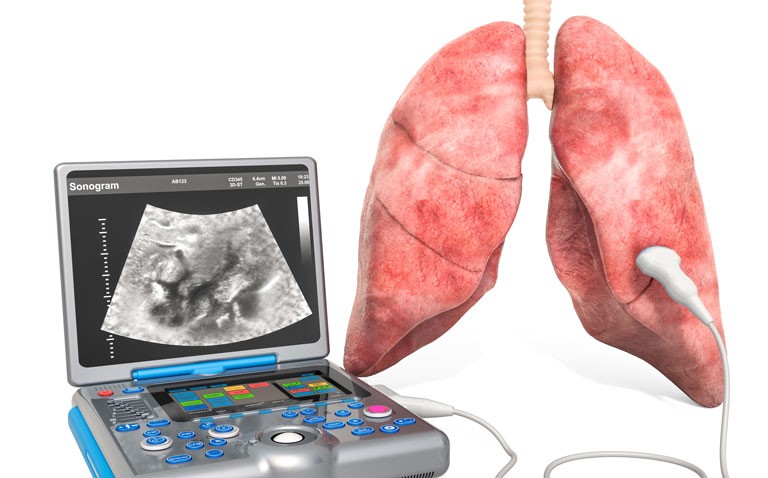A lung ultrasound scan is an imaging modality found to be non-inferior to chest X-rays for the diagnosis of COVID-19 pneumonia
The use of a lung ultrasound scan has been observed to be non-inferior to the use of chest X-rays for the diagnosis of patients with COVID-19 viral pneumonia. This was the conclusion of a study by a team from U.O.C. Geriatria, Accettazione Geriatrica e Centro di Ricerca per l’invecchiamento, Ancona, Italy.
The use of a lung ultrasound has been advocated for use in symptomatic medical inpatients with known or suspected COVID-19, to support the diagnosis of pneumonitis. Lung ultrasound enables the identification of early lung involvement during the course of an infection with COVID-19.
Nevertheless, the specific role of lung ultrasound in COVID-19 is still evolving and a recent review concluded that the current enthusiasm for lung ultrasound should be directed into strong controlled studies and descriptive analyses towards determining patient outcomes. In addition, ultrasound findings should also be taken in context of all other clinical and radiological.
For the present, retrospective analysis, the authors wanted to demonstrate the usefulness of a lung ultrasound scan in the early diagnosis of COVID-19 positive patients and to compare these results with those of a chest X-ray.
Both the ultrasound and chest X-rays were performed on patients during the visit to an emergency department with symptoms suggestive of COVID-19 and there were no exclusions, such as that all patients who received both a lung ultrasound and chest X-ray were included in the analysis.
The authors used multiple regression analysis in an effort to identify whether any of the observed changes on the lung ultrasound were significant predictors of both the presence of a positive COVID-19 test result and other clinical outcomes such as the need for intubation and subsequent COVID-19-related mortality.
Lung ultrasound scan findings in relation to COVID-19
A total of 479 patients were included in the retrospective analysis, of whom, 82.6% tested positive for COVID-19 (mean age 66.4 years, 41.2% female). The most common findings on the ultrasound were B-lines (80.17%), irregular pleural lines (59.3%) and small sub-pleural consolidations (55.3%). Moreover, a normal chest X-ray was found in only 18.9% of cases.
When looking at the results of the lung ultrasound, there were some significant differences between COVID-19 positive and negative patients. For example, both pleural effusion (P < 0.001) and B-lines (P < 0.001) were significantly different for the two groups of patients.
Using multiple regression analysis, the authors identified how only B-lines and small consolidation were significant predictors of whether a patient tested positive for COVID-19. However, when using adjusted regression models, only consolidations (p < 0.001) on the lung ultrasound scan was significantly associated with a positive COVID-19 test result.
Additional analyses also revealed that predictors of the need for orotracheal intubation were ultrasound findings of small consolidation (p = 0.004) and how the presence of ultrasound effusion was a significant predictor of subsequent COVID-19 mortality (p = 0.045), as was X-ray small consolidation (p = 0.043).
Discussing these findings, the authors suggested that their data showed the value of lung ultrasound for the diagnosis of COVID-19 in patients presenting to an emergency department. They added how lung ultrasound was potentially useful for risk stratification of patients given the association of findings with the need for intubation and the mortality risk.
They concluded that a lung ultrasound scan was shown to be non-inferior to a chest X-ray and that the ultrasound findings were associated with the presence of a positive test result for COVID-19.
Citation
Caroselli C et al. Early Lung Ultrasound Findings in Patients With COVID‐19 Pneumonia. A Retrospective Multicenter Study of 479 Patients J Ultrasound Med 2022










